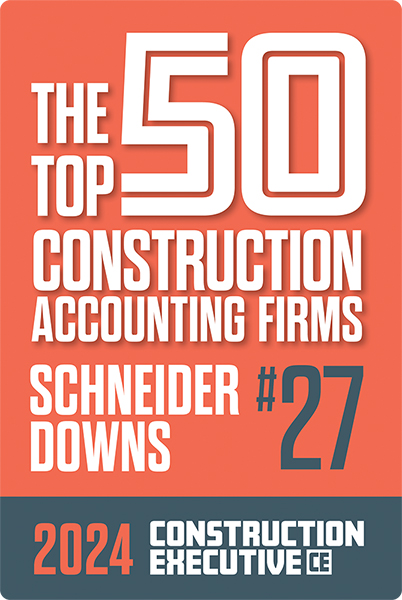Understanding the Role of Construction Accounting in Effective Financial Management
Understanding the Role of Construction Accounting in Effective Financial Management
Blog Article
Exploring the Relevance of Building Audit in the Building Sector
The building and construction market operates under one-of-a-kind economic obstacles that require a specialized strategy to bookkeeping. Construction audit not just ensures the precision of monetary coverage but additionally plays a critical function in task monitoring by allowing efficient task costing and resource allotment. By understanding its vital principles and advantages, stakeholders can considerably influence task results. Nevertheless, the intricacies integral in construction bookkeeping raising concerns about ideal techniques and the devices available to manage these details properly. What strategies can building companies execute to optimize their financial procedures and drive success?
Special Challenges of Construction Audit
Often, building audit offers one-of-a-kind obstacles that differentiate it from other markets. One key challenge is the complicated nature of building projects, which frequently involve numerous stakeholders, rising and fall timelines, and varying policies. These factors require thorough tracking of costs related to labor, products, devices, and expenses to keep task earnings.
An additional considerable obstacle is the need for accurate work costing. Building business have to assign expenses to details jobs properly, which can be hard as a result of the long period of time of jobs and the possibility for unpredicted costs. This demand needs durable accountancy systems and techniques to make certain prompt and exact financial reporting.
Furthermore, the building market is prone to alter orders and contract adjustments, which can better make complex monetary tracking and forecasting. Effectively making up these adjustments is important to avoid disagreements and guarantee that projects stay within budget plan.

Key Principles of Building And Construction Accounting
What are the fundamental concepts that direct building and construction bookkeeping? At its core, construction accounting focuses on exact tracking of profits and prices connected with specific jobs. The initial principle is making use of work setting you back, which makes sure that all costs connected to a job-- labor, products, expenses-- are meticulously documented and designated. This permits specific success evaluation at the job level.
An additional key concept is the application of the percentage-of-completion technique. This technique identifies revenue and expenditures proportionate to the task's development, offering a more practical sight of monetary performance in time. Furthermore, building and construction audit emphasizes the relevance of conformity with accounting criteria and laws, such as GAAP, to ensure openness and reliability in economic coverage.
Additionally, cash money flow monitoring is essential, given the usually intermittent nature of building and construction projects. These concepts jointly form a robust structure that sustains the distinct financial needs of the building industry.
Benefits of Efficient Building Accounting
Effective building bookkeeping gives various benefits that dramatically improve the overall management of projects. One of the main benefits is improved economic visibility, enabling job managers to track costs properly and check cash flow in real-time. This openness assists in notified decision-making, decreasing the threat of spending plan overruns and making certain that sources are allocated effectively.
Furthermore, effective construction accounting boosts conformity with regulatory needs and market requirements. By maintaining precise economic documents, companies can easily provide documents for audits and satisfy contractual responsibilities. This persistance not just fosters depend on with stakeholders and customers but additionally mitigates potential lawful risks.
In addition, efficient accountancy methods contribute to better task projecting. By examining past performance and monetary trends, building firms can make more exact predictions regarding future job prices and timelines. construction accounting. This ability enhances calculated planning and makes it possible for companies to respond proactively to market fluctuations
Tools and Software for Building Accounting
A range of specialized devices and software program solutions are offered for building and construction audit, each developed to streamline financial monitoring procedures within the market. These tools assist in monitoring, reporting, and analyzing economic data certain to construction jobs, making sure accuracy and compliance with industry standards.
Leading software options include integrated building administration his explanation systems that include project budgeting, monitoring, and accounting capabilities. Solutions such as Sage 300 Building And Construction and Property, copyright for Service Providers, and Perspective Panorama offer includes customized to take care of work setting you back, payroll, and invoicing, making it possible for construction companies to preserve exact economic oversight.
Cloud-based applications have actually gotten popularity because of their accessibility and real-time cooperation capabilities. Devices like Procore and CoConstruct enable groups to accessibility monetary data from numerous places, improving interaction and decision-making procedures.
In addition, building bookkeeping software typically supports conformity with regulative needs, helping with audit routes and tax reporting. The integration of mobile applications additional enhances operational efficiency by enabling area personnel to input data directly, decreasing hold-ups and mistakes.

Ideal Practices for Building Financial Monitoring
Effective building and construction bookkeeping depends not just on the right tools and software program but additionally on the application of finest techniques for monetary monitoring. To achieve reliable monetary oversight, construction firms must focus on precise and regular project budgeting. This procedure involves damaging down job prices right into detailed groups, which permits better tracking and forecasting of expenditures.
Another crucial practice is keeping a durable system for invoicing Read Full Article and money circulation management. Timely invoicing makes certain that repayments are gotten quickly, while thorough capital tracking aids protect against liquidity concerns. Additionally, building firms should embrace a rigorous technique to work setting you back, examining the actual prices against budget plans to recognize differences and adjust approaches accordingly.
Moreover, promoting openness through comprehensive financial coverage improves stakeholder trust fund and aids in educated decision-making. Routine monetary evaluations and audits can also discover prospective inadequacies and areas for renovation. Last but not least, continual training and development of monetary management skills amongst staff make sure that the group continues to be experienced at navigating the complexities of building accountancy. By incorporating these ideal methods, construction firms can enhance their economic stability and drive task success.
Final Thought
In conclusion, construction audit serves as a basic element of the building industry, dealing with unique challenges and sticking to crucial concepts that improve monetary accuracy - construction accounting. By carrying other out finest techniques, building firms can cultivate stakeholder trust fund and make educated choices, inevitably contributing to the general success and sustainability of jobs within the market.
Building accountancy not just ensures the precision of economic reporting however also plays a critical duty in project administration by making it possible for effective job costing and resource allocation. Furthermore, building and construction accounting stresses the significance of compliance with bookkeeping criteria and laws, such as GAAP, to guarantee transparency and reliability in economic coverage.
Successful building accounting relies not only on the right tools and software however also on the application of ideal methods for financial monitoring. Continual training and advancement of monetary monitoring skills amongst team make certain that the team stays adept at browsing the complexities of building accounting.In conclusion, building accounting offers as a fundamental part of the construction sector, dealing with unique difficulties and sticking to vital principles that boost economic accuracy.
Report this page